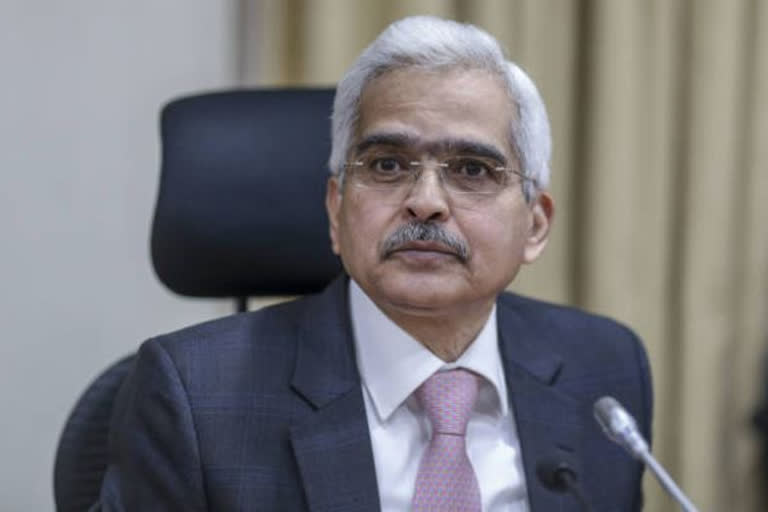Mumbai: The Reserve Bank of India (RBI) on Friday cut benchmark interest rate by 75 basis points cent to deal with the hardship caused due to the outbreak of COVID-19.
The RBI Monetary Policy Committee, which met for three days in Mumbai on March 24, 26 and 27, decides by a majority of 4:2 to cut the Repo Rate, the rate at which banks borrow money from the RBI, from 5.15% to 4.4%, the lowest in at least 15 years.
RBI also reduces Reverse Repo Rate, the rate at which banks park their additional money with the RBI by 90 basis points, from 4.9% to 4% and will maintain accommodative policy stance to support growth as long as it may be necessary.
Measures to boost money supply in the system:
- In order to improve money supply in the system, the RBI will cut the Cash Reserve Ratio (CRR) of all banks by 100 basis points, from 4% to 3% with effect from March 28 for a period of one year for the first time in over seven years. The move will release additional liquidity of Rs 1.37 lakh crore in the system.
- RBI also decided to reduce the requirement of maintaining minimum daily CRR balance from 90% to 80%. This one time window that will come into effect tomorrow will only be applicable till June 26, 2020.
- RBI also decided to increase the accommodation under the Marginal Standing Facility MSF from 2% of the Statutory Liquidity Ratio (SLR) to 3% of the SLR. It will come into immediate effect and will be applicable till June 30, 2020. This will also release an additional liquidity of Rs 1.37 lakh crore in the system.
- These two measures, reduction in CRR and MSF will inject a total liquidity of Rs 2.74 lakh crore in the system.
Big relief on EMI payments
- In a major decision, the RBI has allowed lenders in the system – scheduled commercial banks, RRBs, co-operative banks, small finance banks, local area banks, NBFCs, and micro-finance institutions to allow a moratorium on payment of EMIs in respect of all term loans such as home loan, auto loan and personal loan that are outstanding on March 31, 2020.
- It means the tenor for all such loans can be shifted by three months, which means if the borrowers are not able to pay EMIs during these three months then the lending institution can allow this and their accounts will not be classified as NPAs.
Relief to businesses
- In a major relief to the business community, the RBI allowed banks and NBFCs and all other lending institutions to allow deferment of interest payment on cash credit, overdraft facilities sanctioned to meet the working capital requirement of the borrowers.
- RBI said the accumulated interest for the period will be paid after the expiry of the deferment period.
Other major points:
- RBI has quarantined 150 personnel, support staff at its headquarters in Mumbai to maintain business continuity during the outbreak of COVID-19.
- RBI Governor Shaktikanta Das predicted a big global recession and said India will not be immune. If the Covid-19 pandemic prolongs and supply disruptions continue, the global slowdown could deepen with adverse impact on India.
- Inflation numbers for January and February are 30 basis points more than its earlier projections due to onion price shock.
- RBI says the collapse in crude oil prices may eventually ease both wholesale and retail inflation.
- RBI also says that volatility in the financial market may have a bearing on inflation.
- RBI also refuses to give projections for both inflation and GDP growth projections due to uncertain situation caused by the outbreak of novel coronavirus.
- RBI says finance is lifeline of the economy and to maintain its flow is extremely important for the Bank.
- RBI says targeted and system-wise liquidity measures have been adopted to improve liquidity situation that is under stress due to COVID-19.
- RBI will conduct auction of long-term repo operations of Rs 1 lakh crore at policy repo rate. These long terms operations will have a duration of three months.
- The liquidity measures announced by the RBI will make available a total Rs 3,74,000 crore to the country's financial system.
- Under this window, the first auction of Rs 25,000 crore will be conducted today.
- RBI Governor Shaktikanta Das asserted there Indian banking system is safe, and termed linking banks' share prices to safety of deposits as "fallacious" thinking.
- The Reserve Bank allowed banks to participate in offshore non-deliverable forward (NDF) rupee markets with a view to contain volatility in the domestic currency. The measure is aimed at improving depth and price discovery in the forex market segments by reducing arbitrage between onshore and offshore markets.
- While the Monetary Policy Committee (MPC) of the RBI originally was slated to meet in the first week of April, it was advanced by a week to meet the challenge of coronavirus.
Read more:War against COVID-19: Union govt announces Rs 1.7 lakh crore PM Garib Kalyan package
(Report by Krishnanand Tripathi)



